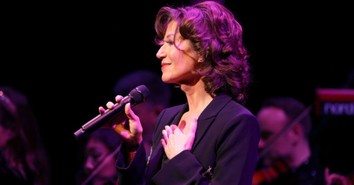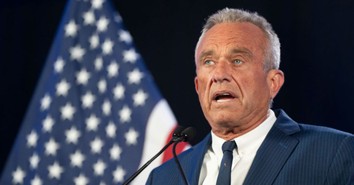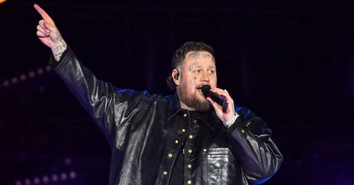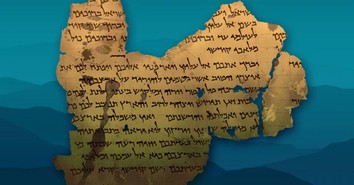J.D. Vance Shares How His Catholic Faith Influences His Politics
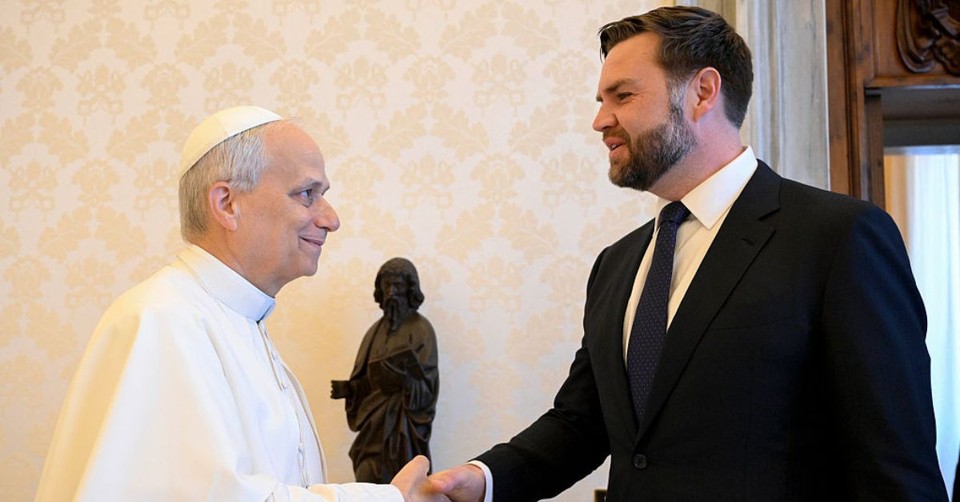
Vice President J.D. Vance says in a new interview that his Catholic faith informs but does not dictate his political beliefs and that he takes the criticism from faith leaders over Trump administration policies seriously. Vance made the remarks in an interview with New York Times columnist Ross Douthat, a fellow Catholic, one day after Pope Leo XIV's inauguration in Rome, which Vance attended. The interview was part of Douthat's new podcast, Interesting Times.
"I am a Catholic. I believe that he, meaning Pope Leo, is actually the shepherd of 1.4 billion Catholics," Vance said. "And so there are things like bowing before him, kissing the ring, that are signs of respect for a spiritual father -- but on the world stage, I'm not there as J.D. Vance, a Catholic parishioner. I'm there as the vice president of the United States and the leader of the president's delegation to the Pope's inaugural mass. Some of the protocols about how I respond to the Holy Father were much different than how I might respond to the Holy Father."
As vice president, Vance said, he did not bow or kiss Leo's ring.
Vance laid out three approaches to the intersection of faith and politics for a Catholic politician: 1) a strict separation of religious belief from public policy, 2) unwavering adherence to every directive from the Pope, and, 3) a balanced middle ground.
"All of us are informed by our moral and religious values," he said.
The vice president addressed an issue -- the Trump administration's policy on migration and immigration -- that has been the main source of criticism from Catholic leaders. He said he believes a country can "enforce its borders" while respecting "the dignity of migrants."
"You have to be able to hold two ideas in your head at the same time," he said. "And I'm not saying I'm always perfect at it, but I at least try to think about, okay, there are obligations that we have to people who in some ways are fleeing violence or at least fleeing poverty. I also have a very sacred obligation, I think, to enforce the laws and to promote the common good of my own country defined as the people with the legal right to be here."
Vance said he spoke with many cardinals while in Rome and discussed immigration.
"I've had a lot of good, respectful conversations, including with cardinals who very strongly disagree with my views on migration," he said. "... It's easy to get locked in sort of a left versus right -- 'the left respects the dignity of migrants, the right is motivated by hatred.'… Some liberal immigration advocates get locked in that view that the 'only reason why J.D. Vance wants to enforce the borders more stridently is because he's motivated by some kind of hatred or some kind of grievance.'"
Vance said his views on immigration are motivated by what's best for the U.S.
"How do we form the kind of society where people can raise families, where people join in institutions together, where what I think [Edmund] Burke would have called the mediating layers of society are actually healthy and vibrant."
Too much immigration, he said, can be "destructive to the common good."
"I really do think that social solidarity is destroyed when you have too much migration too quickly," he said. "And so that's not because I hate the migrants or I'm motivated by grievance. That's because I'm trying to preserve something in my own country where we are a unified nation. And I don't think that can happen if you have too much immigration too quickly."
Catholic teaching also informs Vance's view of economics, he said.
"I think one of the criticisms that I get from the right is that I am insufficiently committed to the 'capital M' market. I am a capitalist. I believe the market economy is the best way of provisioning goods and services and coordinating people across a very complex society," Vance began.
"But I'm not one of these people who says every intervention in the market -- for example, trade, which I'm sure that we'll get into -- if you apply a tariff on an imported good, there are a lot of people who say, 'Well, that is a violation of some market rule.' I think one of the things that I take from my Christian principles and Catholic social teaching specifically, whether you agree with the specific policies of our administration, is look, the market is a tool, but it is not … the purpose of American politics.
"The purpose of American politics should be to encourage our citizens to live a good life, and part of that is good, dignified work. Part of that is having a high enough wage that you can support a family. That very much flows from my Catholicism. To be clear, I'm not saying it has to flow and that the people who don't share my faith can't worry about those things, but that is something very much that I take from Catholic social teaching, and it certainly influences my views on economics. Obviously, I'm pro-life. I care about the rights of the unborn. That very much flows from my Christian perspective."
American society has become "way too hostile" to family formation, he said.
"Europe and America have been quite bad at supporting families over the last generation, and I think you see that in the fact that fewer people are choosing to start families. That's something else that I think a lot about because of my faith," Vance said. "So it would be easier to say, 'What does your faith not cause you to think about?' -- because when you really believe something, and I do believe it, not saying I don't have doubts, I think everybody does -- but when you really believe something, it ought to influence how you think about the way that you do your job, the way that you spend time with your wife and your children -- it just necessarily informs how I live my life."
Photo Credit: ©Getty Images/Vatican Pool/Contributor
Michael Foust has covered the intersection of faith and news for 20 years. His stories have appeared in Baptist Press, Christianity Today, The Christian Post, the Leaf-Chronicle, the Toronto Star and the Knoxville News-Sentinel.
Listen to Michael's Podcast! He is the host of Crosswalk Talk, a podcast where he talks with Christian movie stars, musicians, directors, and more. Hear how famous Christian figures keep their faith a priority in Hollywood and discover the best Christian movies, books, television, and other entertainment. You can find Crosswalk Talk on LifeAudio.com, or subscribe on Apple or Spotify so you never miss an interview that will be sure to encourage your faith.
Originally published May 22, 2025.


